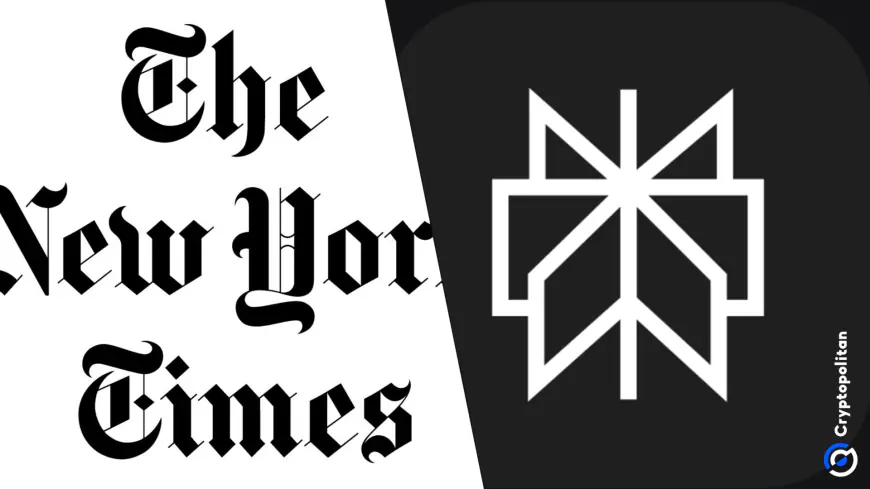New York Times clashes with Perplexity over copyright violations
The New York Times (NYT) has slapped Perplexity with a cease-and-desist order demanding the AI startup to stop using its content in its summaries and output. This adds to the other AI firms the New York Times has clashed with, like Microsoft and ChatGPT maker OpenAI for unlawfully accessing its content to train their AI […]

The New York Times (NYT) has slapped Perplexity with a cease-and-desist order demanding the AI startup to stop using its content in its summaries and output.
This adds to the other AI firms the New York Times has clashed with, like Microsoft and ChatGPT maker OpenAI for unlawfully accessing its content to train their AI models.
Perplexity accused of copyright infringement
According to the Wall Street Journal (WSJ) which reviewed the letter sent to the Jeff Bezos-backed AI startup through its law firm, the publisher accused Perplexity of using its content without authorization.
This prompted the NYT to send a “cease and desist” letter to the AI startup, for copyright infringement.
“Perplexity and its business partners have been unjustly enriched by using, without authorization, The Times’s expressive, carefully written and researched, and edited journalism without a license,” the publisher is reported to have said.
The letter also demanded that Perplexity explain how they accessed NYT website despite some prevention efforts.
This comes as the AI startup had previously assured NYT that it would cease to use “crawling” technology, yet the publisher alleged its content was still appearing on Perplexity.
“We are not scraping data for building foundation models, but rather indexing web pages and surfacing factual content as citations to inform responses when a user asks a question.”
Perplexity.
Last year in December, the NYT sued Microsoft and OpenAI for alleged copyright violations in what was one of the biggest and first legal fight over generative AI and journalism.
For Perplexity, being a conversational search engine platform that uses natural language and predictive text to get the relevant answers, the AI startup scraps data from the web and gathers information from reputable authorities and sources like news articles, websites and journals.
According to Readwrite, the AI company then compiles the most relevant insights into an answer, including numbered footnotes which link to the sources.
Perplexity to respond to the letter
Perplexity also told Reuters that it plans to respond to NYT by the October 30 deadline that the publisher set to provide the details it requested.
The AI startup adds to a list of AI firms to clash with publishers over scrapping data off the internet to train their various AI models. This also comes as the debate around the connection between AI and journalism has been topical lately, with the growing use of the AI technology across sectors.
While Perplexity is the latest to be caught up in these conflicts between AI and journalism, the AI startup has made efforts to be proactive and stay in good books with other stakeholders. In July, the company announced a revenue-sharing model with publishers.
The AI startup spoke of its “Perplexity Publishers’ Program,” in which it explained that revenue earned from “an interaction where a publisher’s content is referenced, that publisher will also earn a share.”
When the company launched the program, the first batch of publishers on its list included Der Spiegel, Entrepreneur, Fortune, Time, The Texas Tribune, and Wordpress.com.
Other industry peers have also made similar deals with publishers, for instance, OpenAI has partnered with several publishers including Hearst, News Corp, Time among others.
What's Your Reaction?









































































































